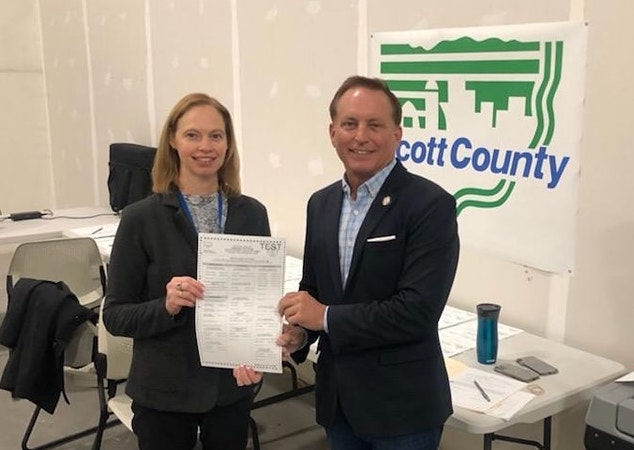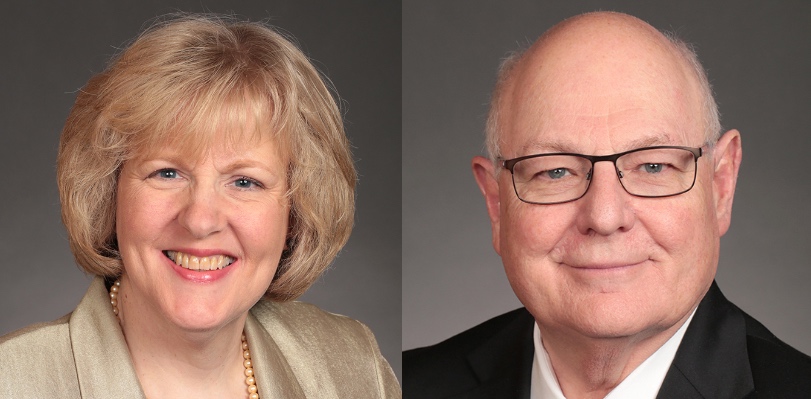Fifth in a series interpreting the results of Iowa’s 2022 state and federal elections.
Iowa’s final unresolved race from 2022 wrapped up on December 7 when Republican Luana Stoltenberg was declared the winner in House district 81. She received 5,073 votes (50.05 percent) to 5,062 votes (49.95 percent) for Democrat Craig Cooper. Stoltenberg led by 29 votes on election night in the district, which covers part of Davenport. But the Democrat pulled ahead by six votes once Scott County officials tabulated hundreds of overlooked absentee ballots.
It’s rare for a recount in an Iowa legislative race to alter the vote totals by more than a dozen. It’s even more rare for a recount to produce fewer overall votes for each candidate. Yet as Sarah Watson noted in her story for the Quad-City Times, the three-member recount board’s final “totals showed 31 fewer votes for Cooper and 14 fewer votes for Stoltenberg.”
Cooper conceded the race but expressed “grave concerns” about the inconsistent ballot counts in a December 7 Facebook post.
It’s clear that something went very wrong with the processing of absentee ballots in Iowa’s third largest county. The problems warrant further investigation to prevent anything like this from happening again.
Continue Reading...




